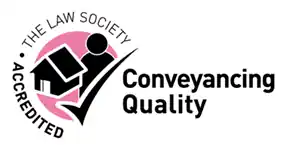Limb Loss and Amputation Claim
Our personal injury lawyers can help you to make a limb loss and amputation claim for compensation to reflect:
- the physical pain and psychological impact your injury has caused;
- the impact it has had on your quality of life, including your ability to pursue your hobbies;
- any out of pocket expenses you have incurred, for example through travel costs to attend medical appointments;
- the cost of home and vehicle adaptations;
- the cost of any specialist equipment you require, including a privately sourced state-of-the-art prosthetic;
- the cost of any ongoing care or medical support you will require; and
- any loss of earnings or pension entitlement, including future losses where you will be unable to return to your previous employment.
We can deal with a range of claims, from finger amputation resulting from an injury causing necrosis to an above or below the knee amputation resulting from damage caused to body tissues by a car accident, gun shot wounds or severe burns.
Personal Injury Compensation
A compensation claim may be possible in any case where a limb has been severed, or has had to be removed through surgery, as a result of a traumatic injury sustained in an accident, violent crime, terrorist attack or military accident for which you, or a loved one you are claiming for, were not to blame.
Accidents are by far the most common source of claims, particularly road traffic accidents involving motorcyclists or pedestrians and accidents at work involving heavy machinery.
In most cases, the person at fault for the accident will be covered by insurance and so the cost of your claim will be met by an underwriter. However, injuries resulting from a criminal or terrorist event are likely to be covered by the government under the Criminal Injuries Compensation Scheme.
Geographic Restrictions
The lawyers at Step Legal Solicitors can deal with any case involving an injury sustained in an accident which took place in England or Wales or which occurred as a result of an accident abroad where your trip was part of a package holiday booked through a UK tour operator.
In criminal injuries or terrorism cases, we can provide legal representation for injuries sustained in England, Wales or Scotland and certain other countries covered under the Criminal Injuries Compensation Scheme.
Compensation amount
The amount of compensation you receive will depend on a number of factors, including how you were injured, the degree of amputation you suffered, whether you have lost one or multiple limbs or other body parts and the impact your injuries have had on your life and are likely to continue to have going forward. Awards can vary from tens of thousands to hundreds of thousands of pounds for a severe injury.
Time Limits
In most cases you will have three years in which to bring a compensation claim. However, the time limit will be longer where you are claiming on behalf of a child or someone who is mentally incapacitated. Conversely, the time limit will be shorter where a claim is being submitted to the Criminal Injuries Compensation Scheme or under the rules which govern accidents abroad.
To give your claim the best chance of success, you need to seek legal advice as soon as possible.
Why choose Step Legal Solicitors?
Our lawyers are serious injury solicitors who have been supporting accident victims for over 40 years and who have a proven track record in securing impressive levels of compensation, particularly for people who have suffered devastating or life-changing injuries.
Our service levels are consistently ranked as outstanding by clients through a growing list of positive testimonials and our commitment and expertise in handling personal injury claims is evidenced through our membership of The Law Society Personal Injury Accreditation Scheme and the Association of Personal Injury Lawyers.
We are particularly respected for our work with clients with complex needs, including those who now experience profound psychological difficulties as a result of the traumatic events they have been through, including many who suffer from post-traumatic stress disorder.
We are also well-known for taking on claims that other lawyers have dismissed as having no chance of being successful and in providing a second opinion on the apportionment of blame following an accident investigation and on proposed compensation payments where the amount offered in settlement of a claim appears too low.
However, what really sets us apart from other personal injury solicitors is our commitment to go above and beyond in our efforts to make your life as an amputee as comfortable and fulfilling as possible, whether that is by pushing the person to blame for your injuries to fund private medical care or a high performance prosthetic to aid your independent living or by ensuring you receive as much compensation as possible to safeguard your financial future.
We will also advise you on the use of a personal injury trust where your right to continue receiving state benefits might be compromised by a compensation payment and on the advisability of updating your will to ensure that, when you die, the money you have received goes to your loved ones.
Finally, to service the needs of the growing Polish Community within Crewe and the surrounding areas, we employ a Polish paralegal to assist with interpretation during meetings and with the translation of documents and medical reports.
Legal Fees
We understand that the payment of legal fees can be a big worry, but the way personal injury claims are funded means that this should not be a concern.
Finding out if you are eligible to make a claim will cost you nothing as we offer a free consultation. Thereafter, most claims can be funded under an insurance policy or via a no win, no fee arrangement, meaning that there will be no financial risk to you in the event your claim is unsuccessful.
To find out more, take a look at our costs information factsheet.
Location
Our offices are based in Crewe, about a 10 minute walk from the mainline train station. We have a wheel-chair lift and step-free access to our reception area, as well as a ground floor meeting room. We also have a limited number of on-site parking spaces and home visits can be arranged throughout Cheshire and Staffordshire. This includes within Crewe itself and the surrounding towns of Macclesfield, Sandbach, Northwich and Nantwich, as well as in Stoke-on-Trent.
Any questions?
We understand that there will be many questions you want answering before deciding to proceed with a personal injury claim. Answers to some of the most common questions we are asked can be found below in our frequently asked questions guide. For anything else, please pick up the phone and give us a call – our lawyers in Crewe are waiting to help.
You can make a personal injury claim whenever you have been physically or psychologically injured in an accident for which someone else was to blame or where an injury has occurred as a result of a criminal act in which you were an innocent bystander.
A claim can also be made for injuries suffered by a close relative where they are unable to claim for themselves, for example due to their age, the severity of their injuries or because they have since passed away.
The type of things you can claim for will vary depending on how your injuries were caused, who you are claiming against and whether your claim is governed by English law or the law of another country, for instance where you have been hurt in an accident abroad.
In most cases a claim can be made for:
In the event of a fatal accident, a claim can usually be made for:
In the event of a criminal act resulting in injury, a claim can usually be made for:
any associated loss of earnings or out of pocket expenses.
The amount of compensation you receive will vary depending on a number of factors, including:
Compensation for minor injuries from which a full and relatively speedy recovery can be expected will typically command payments of a few thousand pounds whereas the compensation for more serious life changing or life threatening injuries can result in payments running into hundreds of thousands if not millions of pounds.
Where a claim for compensation is made against the government then the amount of compensation you receive will usually be capped. This will be the case where a claim for injuries arising out of a violent criminal act is made to the Criminal Injuries Compensation Authority and for asbestos related mesothelioma claims made under the Diffuse Mesothelioma Payments Scheme where neither the responsible employer nor their insurer can be found.
Yes. Whenever a personal injury claim is made consideration will be given to whether there is anything that can be done to help you recover more fully or more quickly. Where we believe that there are things which could help we will discuss these with the person or organisation we are proposing to sue on your behalf (or, in many cases their insurer) to see whether they would be prepared to pay for these things to give you the best chance of getting your life back on track as soon as possible.
Our request for help has to be considered seriously because under the rules which govern personal injury claims there is an obligation to assess at any early stage, in every case, whether you would be likely to benefit from any further medical treatment, rehabilitative services such as physiotherapy or counselling, mobility aids and specialist equipment or professional support while you attempt a phased return to work. These rules are set out in the Personal Injury Pre-Action Protocol and the Personal Injury Rehabilitation Code.
Generally speaking where we ask for advanced funding we get it, particularly in cases involving serious injury where the party we propose to sue is clearly at fault and acknowledges this.
We can also often secure a voluntary payment to help tide you over financially if you are beginning to struggle with a drop in wages and increased overheads. Alternatively we can seek a compulsory interim payment order from the court which will entitle you to an early payment on account of any compensation you are likely to receive.
Yes. We are always happy to provide a second opinion where you have been told by another lawyer that your case is not strong enough to proceed or where they believe the time limit for bringing a claim has expired and there are no exceptional circumstances justifying an extension.When you come to see us we will assess your case afresh and if we believe a claim is possible we will tell you
The process for making a claim will vary depending on a number of factors, including the type of injury you have suffered, whether the person or organisation we say is to blame admits responsibility and whether the amount of compensation we are trying to claim on your behalf is agreed or disputed.
Broadly speaking, when you ask us to deal with a claim we will:
signpost you to professional advisors who can help you to manage your money and set up a personal injury compensation trust if necessary to preserve your entitlement to claim means tested state or local authority benefits.
Possibly, it depends on whether the person or organisation we say is to blame for your injuries admits they were at fault and agrees to pay an acceptable amount of compensation. If they do then an out of court settlement will be a real possibility. However, in other cases a court hearing will be needed to determine your claim and decide whether or not a compensation award ought to be made.
Where attendance at court is required this should not be a cause for concern as we will be there to support you. We will explain the process, ensure your case is fully prepared and that it is presented in the best possible light to maximise your chances of walking away with a positive result.
In most cases there will be no upfront costs to pay to make a personal injury claim. This is because in the majority of cases we can deal with your claim under a conditional fee arrangement, more commonly known as a ‘no win, no fee’ deal. Full details of how this type of funding arrangement works can be found in our costs information guide, but in essence under such an arrangement we will agree not to charge you for our services if we are not successful in recovering compensation on your behalf and you will agree that if we are successful we can take a small slice of your compensation by way of reward.
Insurance will be arranged to cover any other costs which may arise and which should mean that, unless the claim you have made is fraudulent or bad in some other way, you will not be exposed to any financial risk even if your claim for compensation ultimately fails.
The time it takes to deal with your claim will depend on a number of factors, including whether the person or organisation we are holding responsible for your injuries admits they were at fault and agrees with our assessment of the compensation you are entitled to. The severity of your injuries will also be relevant, particularly where it is not immediately clear what the long term prognosis is and therefore how much ongoing care and financial support you are likely to need.
By way of example, a straightforward claim for compensation for an injury arising out of a road traffic accident, accident at work or accident at a property may take between two to 12 months to resolve where fault is admitted and the amount of compensation sought is relatively low. However, an injury arising out of a slip, trip or fall or dog bite or animal attack which results in serious injury giving rise to a substantial compensation claim may take one to three years to resolve or even longer where the case is particularly complex.
You should not be put off making a claim because of the time it may take to deal with. Once the wheels have been put in motion it is often possible for us to secure a payment on account of any compensation you are likely to receive to ensure that you can cope financially while your claim is being assessed. Immediate financial help can also usually be obtained to pay for things like private medical treatment, physiotherapy, counselling services and mobility aids which can greatly improve your chances of making a good recovery.
Yes. All personal injury claims are subject to time limits and if you fail to claim within the limit that applies to your case then there is a high probability that a claim will not be possible.
The usual time limit for the vast majority of cases is three years from the date on which your injury occurred or the date on which you became aware of the injury where it took some time to become obvious. However, there are some notable exceptions where a different time limit will apply, including:
These time limits are strictly enforced so you should take legal advice as soon as possible.
Yes, if you are on means tested state or local authority benefits and we believe that a personal injury compensation trust would be appropriate, which will generally be the case if you have received a compensation payment of more than £6,000. This is because under the rules governing means tested benefits you and anyone living in your household can only have access to up to £6,000 in capital or savings without your entitlement to those benefits being reduced and must in no circumstances have access to more than £16,000 or your benefits will be stopped.
A personal injury compensation trust is a device that can be used to help prevent your benefit payments being affected by the compensation you have received. It works by transferring your compensation into a trust which is operated by people independent of you who will manage it on your behalf and drip feed you funds as and when needed.
We will tell you where we think a personal injury compensation trust may be appropriate and help you to make arrangements for one to be established. This must be done within 52 weeks of you receiving your final compensation payment or an interim payment as appropriate.











